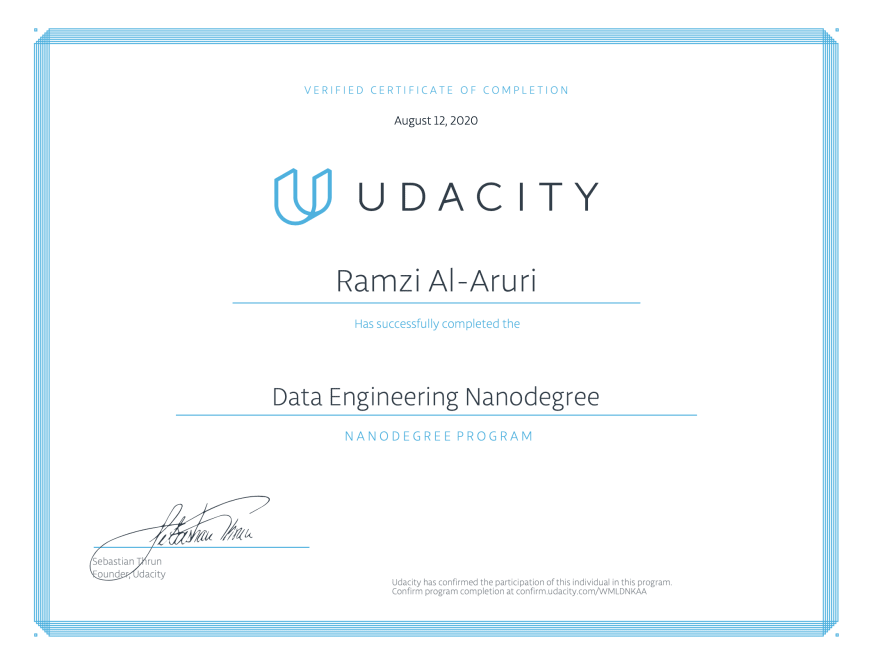Data engineering refers to developing large data collection, and storage, analysis systems. Also, it is known as a wide topic with implications in almost every field.
After considering the industry’s importance, it’s time to learn and fine-tune current data skills and knowledge to succeed in this sector.
How to become a data engineer? Here are essential steps to consider:
- Obtain a degree
- Enroll in a certified program
- Get hands-on experience
- Learn about your databases
- Build a broader toolkit for yourself
- Embrace job opportunities
Let’s refer to this article to get a complete guide. Scroll down!
What Is A Data Engineer?
Data engineering is a wide-ranging subject that spans a variety of specializations, with a core emphasis on establishing dependable infrastructures to enable the consistent flow of data in the data environment.
Data engineers help individuals in a business make data-driven choices by facilitating the flow of excellent and unprocessed data from different sources.
Their main objective is to get data more available so that businesses may assess and enhance their effectiveness.
What do they do exactly? Here are everyday tasks for workers in this profession:
- Analyze exploratory data
- Extract data from a large pool of unprocessed data
- Evaluate and clean data sets
- Prepare and write ETL logic
- Create data streams to deliver data across several servers
- Query and mine data
- Connect data sources
- Make data storage systems
- Optimize data delivery
- Normalize and model data
- Redesign data infrastructure for extensibility
- Utilize the frameworks to conform data
- Aiding data analysts in product optimization

What are the benefits of pursuing a data engineering career? It is a lucrative and challenging field to work in.
You will contribute your effort to a company’s success by making data scientists, decision-makers, and analysts more accessible to the data they want to accomplish their duties.
To design scalable solutions, you’ll need to use your programming, coding, and problem-solving expertise.
Data engineers are always in high demand as data always needs to be processed.
According to Dice Insights, data engineering has surpassed computer scientists, database architects, and web designers as the in-demand career in the IT field.
What do these engineers earn per year? In general, data engineering is a well-paying profession.
Our data reported that the median income for data engineers in the United States is approximately US$111,933, while some may earn US$164,000 annually.
Compared to equivalent data occupations like database administrator or data analyst, data engineers seem to be much well paid.
Is It Hard To Become A Data Engineer?
Data engineering is challenging. It’s a sophisticated and challenging profession.
As you can see, this profession is a very sophisticated job that involves transporting, manipulating, and data storage.
You must be proficient in a variety of techniques and skills. As a result, you should be aware that it’s challenging when studying this field.

Nonetheless, anyone may master the skills necessary to be a data engineer as long as they have enough passion, dedication, and persistence.
Because experience is much more beneficial than schooling, it’s ideal for mastering the fundamentals, finding an entry-level position, and beginning working your way up.
How To Become A Data Engineer
Are you considering a career as a data engineer? This article may help you. To get this position and secure entry-level employment, consider these guidelines.
1. Obtain A Degree
Although factors are just as significant as academic education when pursuing this field, companies require these engineers to have a bachelor’s degree.
To create a solid foundation, you should have a bachelor’s degree in a data-related discipline, mathematics, or science.
You’ll be able to grasp programming fundamentals and land an entry-level position if you study software engineering.
You can perform the actual tasks to gain real-world training and experience to build a diversified portfolio and help you find work in the future.

A degree can help future employers recognize your skills, and studying for a certification course is a great way to improve your knowledge and skills.
Associate Big Data Engineer, Google Cloud Certified Professional Data Engineer, IBM Certified Data Engineer, and Cloudera Certified Professional Data Engineer are some of the certifications obtainable.
If you want to obtain a degree that isn’t in some of those fields, you should take coding, algorithms, data structures, or database administration classes first.
2. Enroll In A Certified Program
As the primary basis for a position in data science, you should master the principles of several concepts and skills.
They may include Programming, ETL Systems, Automation and Scripting, Cloud Computing, Machine Learning, Data Storage, Databases, Data Tools, And Data Security.

Programming
It would be best if you first worked as a software engineer before you could work as a data engineer. As a result, you should polish up your programming fundamentals by participating in courses.
Because knowledge of programming languages is crucial for this position, consider enrolling in classes to gain and perfect your abilities.
Python, SQL, Java, R, NoSQL, and Scala are popular programming languages.
ETL Systems
ETL stands for extracting, transforming, and loading systems. It’s the procedure for consolidating data from several sources and databases into a centralized file, such as a data store.
Xplenty, Alooma, Talend, and Stitch are examples of ETL tools.
Automation and Scripting
Because companies can gather so much relevant information, automation is vital for dealing with big data.
To automate repeated processes, you need to be able to develop scripts. Below are indispensable tools for automation:
- Shell scripting: It’s instructing a UNIX system on tasks and time to perform these duties. You can activate Python scripts or operate a project on a Spark cluster via this tool.
- CRON: It’s a time-based employment planner with a special notation to indicate when you must complete specific tasks.
Cloud Computing
Companies are increasingly swapping physical servers with cloud services, so you should know about cloud computing and cloud storage.
These platforms have the primary benefit of centralizing processing capacity.
They also allow businesses to store nearly endless volumes of data without incurring the fees connected to traditional on-premise warehouses.
If you’re new to cloud computing, try taking a Microsoft Azure, Google Cloud, or Amazon Web Services program.
Machine Learning
Data scientists are more interested in machine learning. Understanding the fundamental ideas might aid in understanding the demands of the scientists in your organization.
Data Storage
In terms of big data, not all forms of data can be held in a similar manner. When designing data solutions for a corporation, you’ll need to learn when to employ a centralized repository versus a database.
Databases
Databases are one of the most popular data storing options. So, it would help if you learned about both non-relational and relational databases.
Data Tools
Data engineers aren’t bound to work with standard data. You are frequently entrusted with handling large amounts of data.
Tools vary depending on each company, but some common ones include Kafka, MongoDB, or Hadoop.
Data Security
Although some firms have specialized data security departments, data engineers are responsible for safely storing and handling data to prevent loss or loss.
3. Get Hands-On Experience
With a degree, data engineering is not a typical first job after graduation. It’s rapidly changing because data engineering matures into a specialized subject.
It’s best to have real-life experience. Most data engineers begin their careers as database administrators or economic intelligence analysts.
When you acquire experience, you’ll be able to learn new expertise and enhance your career.
4. Learn About Your Databases
Databases are an essential aspect of data engineering since they serve as the foundation for large infrastructures. Ensure you always stay updated on your knowledge related to databases and the tools you use to handle them.
It would help if you learned about SQL and NoSQL frameworks. Getting to know database management systems such as MySQL and PostgreSQL is also beneficial.

5. Build A Broader Toolkit For Yourself
Your job opportunities will be significantly enhanced if you improve your skills and knowledge using various web-based tools.
Other options are available, such as Amazon Web Services’ cloud architecture, Microsoft’s SQL Server Management Studio, or Apache Cloudstack.
With a diverse series of tools available, it is no surprise to discover them linked together. It’s best to know their fundamental principles.
6. Embrace Job Opportunities
It can be a long journey to become a data engineer. Don’t get discouraged if you do not immediately discover your ideal job.
It’s better to consider this career as a long-term goal. Many professions, whether related or unrelated, have a steep learning curve.
Therefore, embrace any job opportunities if you get or are offered!
What Qualifications Do Data Engineers Need?
Here are the most vital skills you should have to become a data engineer. Let’s take a look!
Coding
Coding is a vigorously sought ability essential for most data engineering roles.
Many organizations expect applicants to know at least the basics of coding, such as Python, Java, Scala, Golang, SAS, MatLab, Ruby, or Perl.
Data Warehousing
Data engineers take responsibility for storing and interpreting vast amounts of information.
Understanding and experience with data warehousing platforms like Panoply or Redshift are critical.
Critical Thinking
Data engineers must be able to assess problems and then devise innovative and practical solutions.
This skill is essential since there are instances when you may need to invent solutions that haven’t existed.
Understanding The Fundamentals Of Machine Learning
Machine learning is generally the domain of data scientists. Having a rudimentary understanding of how to use this sort of data may benefit data engineers.
Developing your statistical analysis and data modeling skills can assist you in developing solutions for others to use.
Communication
It would help if you worked with both technical and non-technical peers. That is why it is critical to have excellent communication skills.
Though you frequently collaborate with other professionals, you also need to discuss your results and recommendations with colleagues who lack technical expertise.
Knowledge Of Data Analysis
The majority of businesses want data engineers to be well-versed in analytics tools.
When working in this field, you should master some analytics software and Apache Hadoop-based solutions, such as Pig and HBase, Hive, and MapReduce.

Understanding Of Database Systems
It would be best if you were well-versed in database systems. The most extensively standard solution is Structured Query Language.
As a result, having a thorough understanding of it is tremendously beneficial in this sector.
Like Cassandra or Bigtable, other database options are also worth learning, particularly if you intend to work as a freelance data engineer.
How Long Does It Take To Be A Data Engineer?
There is no exact answer to this question. It depends on your consistency and dedication to this position.
The length of time also depends on your experience and schedule.
For instance, if you are familiar with concepts before participating in this field, you will have to spend less time completing your career path.
You will also feel this work much easier if you work as a software engineer before becoming a data engineer.
You’ll need at least four years to master this field. The academic and professional path determines the length of time.
You will spend around four years completing a bachelor’s degree curriculum in college.
On the other hand, if you join a programming boot camp, you will accomplish the curriculum considerably shorter.
FAQs
Is It Possible For A Data Scientist To Be A Data Engineer?
It’s entirely possible. However, the skills needed for each position differ.
Data engineering focuses on software development, and data science necessitates excellent statistics and math expertise.
Do You Need Math For Data Engineering?
This role does not necessitate any math skills. It is the profession of understanding how to acquire, store, transport, and get data available via technology.
Is Data Engineering Stressful?
Data engineering may be a challenging job with several tools and approaches to select from.
There are also deadlines and pressures to contend with. Also, irritation might be caused by a communication barrier between data technologists and non-tech administrators, a shortage of significance, or monotony.
Can Work as a Data Engineer Without Obtaining a Bachelor’s or Master’s Degree?
The good news is yes! There is no formal university program for this job. It is nevertheless feasible to work in this field without obtaining a degree.
In A Nutshell
This post has provided the complete guide on how to become a data engineer? As you can see, you should learn and master programs, tools, and skills.
If you plan to win a place in this employment, it’s best to have a fundamental understanding of these concepts.
Hopefully, this post will be helpful for you. Thanks for reading!
